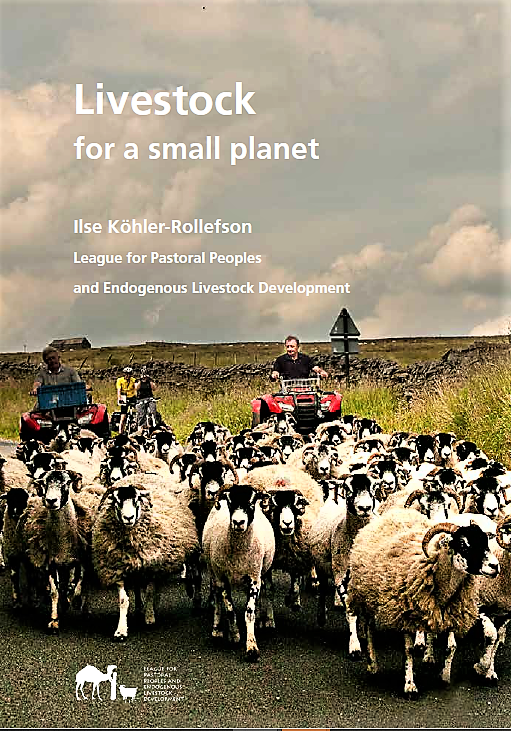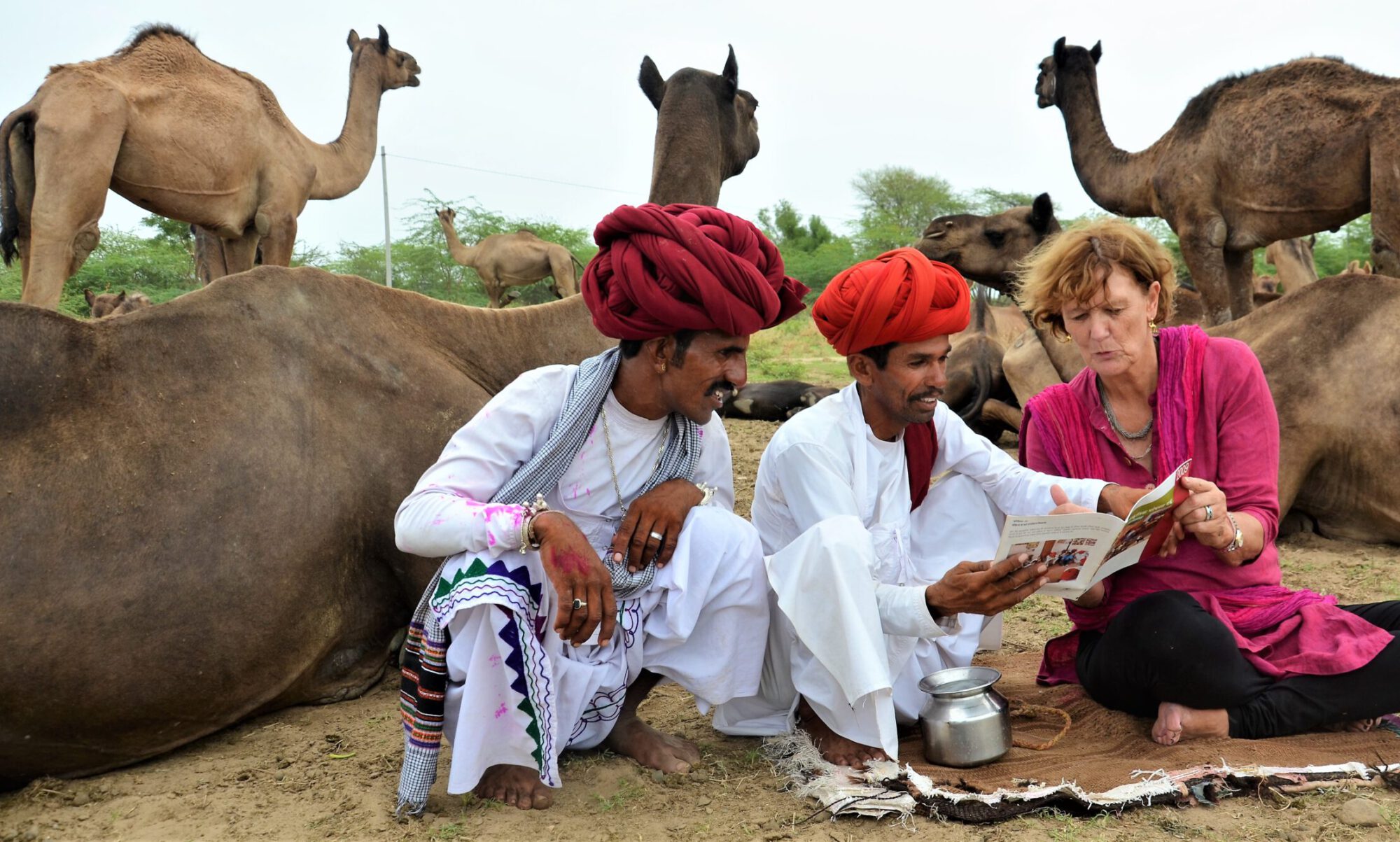
On 5th October, the League for Pastoral Peoples will be launching a new booklet ‘Livestock for a Small Planet’ with a panel of renown livestock experts who have kindly agreed to discuss it.
You can register for this event here and download the publication below
In this small volume I have tried to distill the essence of what I have learnt from the Raika and other pastoralists over the last 30 years, mainly by observing how they are obsessed with grazing for their herds and keeping them healthy, how they treat animals as part of their families, and how they look at landscapes through the eyes of their flocks. Basically how they have a holistic view instead of atomized knowledge as scientists tend to have.
Over the last few years the discussion about livestock has become extremely polarized, with one faction wanting us divorce from our 10,000 year old relationship with farm animals. On the other side is the pro-livestock lobby which does not admit to any faults with how livestock is often being kept and believes in increasing ‘efficiency’ to compensate for livestock emissions and environmental impacts.
There is a golden middle way of keeping livestock humanely and within planetary boundaries for which traditional herding communities (pastoralists) can show us the way. If we adopt their principles of keeping Iivestock in tune with nature, much will be gained and we will be in a much better position to cope with climate change and the increasingly variable conditions this entails.
I am the first to admit that it is impossible to immediately implement a transition to pastoralism everywhere, but we need to adopt the goal post of going back to solar powered rather than fossil fuel powered animal husbandry, say by 2040. And we need to begin that transition now, before it is too late! Lets focus our energies there rather than on eliminating livestock from the planet. They are indispensable allies in keeping the earth inhabitable and we just need to treat them as such – and not as slaves.
I am very grateful to Vandana Shiva for being one of the first readers and am delighted to share her quote:
“Humans are animals. Pastoralists, small farmers, indigenous cultures live with their animals as members of their family. Industrialisation of agriculture and our food systems is based on objectification, manipulation and commodification of plants and animals for highest extraction profits. This has led to violence against animals. Putting an end to the war against our relatives needs putting an end to factory farming and industrial agriculture. Ilse Köhler Rollefson’s “Livestock for a Small Planet” shows the way. It should be read by everyone who cares for the planet and animals. Most importantly, reading about animal cultures who love their animals and sustain their lives and livelihoods in loving and caring relationships with their livestock will remove the ignorance of those who are supporting fake lab food under the illusion that pushing livestock to extinction is ending animal cruelty. Intentional extermination is the highest form of violence. .”Livestock for a Small Planet” is vital reading to transcend the mechanistic, industrial paradigm which objectifies life , promotes monocultures and violent economies. It is an important contribution to protecting our rich biological and cultural diversity. It shows the path for protecting , celebrating and regenerating the cultures of non violent livestock economies and food systems that protect the planet while nourishing people with healthy diets.”
Hoping to see you all at the launch with Elizabeth Katushabe from PENHA- Uganda, Frank Mitloehner from CLEAR Centre at University of California in Davis, Peer Ederer of the Scientific Council of the World Farmers Organization and Shirley Tarawali, Chair of the Global Agenda for Sustainable Livestock and ILRI All cogently and charmingly moderated by Nitya Ghotge of ANTHRA!

 Follow
Follow